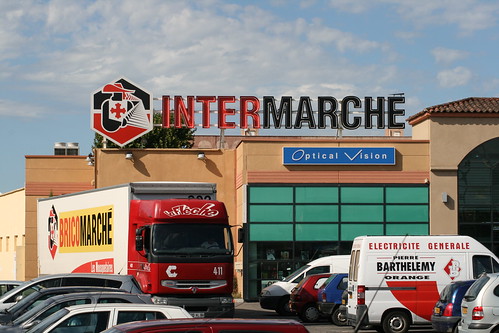The non-profit BLOOM Association based in France challenged consumer advertisements run by Intermarché that claimed its deep sea fleet, Scapêche, used sustainable fishing practices. The French Authority for the Regulation of Professional Advertising, ARPP, has upheld the challenge. The ARPP declared that the advertisements were misleading in their claims of sustainability and that their fishing did not contribute to "the preservation and the renewal of marine resources" as Intermarché had claimed.
It also warned that Intermarché's own label claiming "Responsible Fishing" bore too close a resemblance to the Marine Stewardship Council label and risked confusing consumers. The ARPP ruled that Intermarché's advertisements must be discontinued.
"This decision sends a clear signal to the seafood industry that deep-sea bottom trawling cannot be marketed as 'sustainable'" said Matthew Gianni, co-founder and policy advisor at the Deep Sea Conservation Coalition. ``We hope the ruling convinces Intermarché to get out of the business of deep-sea bottom trawling, given the damage this fishery causes to its reputation."
The ARPP ruling echoes the findings of a number of recent studies which found that deep-sea bottom trawling had a far greater impact on the deep seabed in the Northeast Atlantic than all other activities combined, and that deep-sea trawling was responsible for the depletion of whole communities of deep-sea species.
The International Council for the Exploration of the Sea, the lead intergovernmental body providing scientific advice on fisheries, estimates that the French and other EU fisheries for deep-sea species are 100% "outside Safe Biological Limits".
In recent years, the United Nations has called on fishing nations to take urgent action to protect deep-sea ecosystems, and the Rio+20 Conference this week reaffirmed this call to action. The European Commission plans to release a proposal for a major overhaul of the EU's deep-sea fisheries management legislation in the coming months.
"We hope the ARPP ruling will bolster the resolve of the European Commission to propose a timely phase out of deep-sea bottom trawling as a core element of much needed reform of the EU's deep-sea fisheries management regime" added Gianni. "A phase-out of deep-sea bottom trawling in European waters would be a major victory for the conservation of vulnerable deep-sea species and ecosystems"
For further information please contact
Mirella von Lindenfels in Rio +55 21 80068182
Olivia Lawson in Rio +55 21 81525894
****
Notes to editor:
The Deep Sea Conservation Coalition is a coalition of over 70 organisations worldwide working together under the umbrella of the Deep Sea Conservation Coalition (DSCC) to protect cold-water corals and vulnerable deep-sea ecosystems and promote sustainable fishing practices. www.savethehighseas.org
Benn et al., 2010. Human activities on the deep seafloor in the North East Atlantic: An assessment of spatial extent. PLoSONE. 5(9): e12730.
Bailey et al.,. 2009. Long-term changes in deep-water fish populations in the northeast Atlantic: A deeper reaching effect of fisheries? Proceeding of the Royal Society Biological Sciences, 275: 1965–1969.
ICES. 2010. Status of fish stocks managed by the Community in the Northeast Atlantic. Book 11.
Photo courtesy of jean-louis zimmermann via Flickr (CC BY 2.0)

